You have plans to hang out with your friends over the weekend. You tell your partner, and they respond with, “Oh! I was hoping we could spend the weekend together. I’ve been feeling like you don’t see me anymore.” With that statement, they’ve left you riddled with guilt about wanting to have a good time with your friends. Now, you’d either cancel your plans to be with your SO or go but feel bad about it. And that is exactly what guilt-tripping in relationships looks like.
Guilt can be a powerful weapon for exercising control over another. Sadly, it’s rampantly and skillfully used by many people in their most intimate connections – with romantic partners, friends, children and parents. Irrespective of whether it’s intentional or not, guilt-tripping impedes healthy communication and conflict resolution in relationships and leads to feelings of frustration and resentment.
In this article, clinical psychologist Devaleena Ghosh (M.Res, Manchester University), founder of Kornash: The Lifestyle Management School, who specializes in couples counseling and family therapy, unravels the layers of guilt-tripping in relationships, explaining why it is a form of emotional abuse, what are the warning signs to look out for and how you can handle being guilt-tripped by a partner.
What Is Guilt-Tripping In Relationships?
Table of Contents
Guilt-tripping in relationships is a carefully crafted form of emotional abuse and psychological manipulation used to get someone to do exactly what you want. In most cases, inflicting guilt upon a loved one is an incredibly calculating and conniving way of exercising control and the one wielding this weapon is aware of the consequences of their actions.
Even if guilt-tripping is subconscious or unintentional, it still works as a means of coercing the person at the receiving end to do (or not do) something against their wishes. So, what does it mean when someone guilt trips you? It means you’re being bullied into acting the way another person wants you to.
Related Reading: Verbal Abuse In Relationships: Signs, Effects And How To Cope
Is guilt trip a form of abuse?
Through their words, a person makes you feel bad about your choices, induces guilt for your actions and compels you to change course, aligning your words, thoughts and actions with what they want from you. With that context of the guilt-tripping meaning, let’s address the question, “Is guilt trip a form of abuse?”
Given that guilt-tripping in relationships has all the elements of psychological manipulation, it is undoubtedly a form of abuse. What’s more worrying is that it is a rampant, and often unrecognized, a form of abuse.
By now, you understand that it is done with the objective of getting something out of the other person. Why do people resort to this sly technique in their most intimate relationships? Simply because it enables them to get the maximum output with minimal effort. Another interesting angle to guilt-tripping in relationships is that women – urban women in particular – are the victims more often than not.
To comprehend the impact of this form of emotional abuse, it is vital to understand why guilt-tripping in relationships proves so effective. We, humans, are inherently social creatures. We thrive on positive reinforcements of our behavior from the people closest to us.
However, when a loved one disapproves of our behavior and expresses that disapproval through words, gestures, body language, it works as negative reinforcement, making us want to distance or detach from the behavior that brought it on. In other words, a guilt trip is an emotional punishment for an action, meted out with the intent to get you to change a certain behavior, thought, action or speech.
The guilt we feel when we sense palpable disapproval or disappointment stems from a fear of rejection in love. The guilt-tripper in the equation is prying on that fear by pushing you away, no matter how subtly, to reinforce the kind of behavior they want to see.
Related Reading: Emotional Abuse — 9 Signs And 5 Coping Tips
Signs Of Guilt-Tripping In Relationships
Do you always feel as if you’re not good enough? That somehow you always fall short in living up to the expectations of your partner? Do you find yourself always blaming yourself for not doing enough? Has living up to the expectations of your significant other or your family led to a constant sense of exhaustion?
These are all signs of guilt-tripping. One of the most telling guilt trip examples is guilt issues in working women. These tendencies of self-blame and feeling like you’re always falling short are triggered by guilt-induced by loved ones – be it your significant other, your parents or children.
For instance, during the lockdowns imposed in the initial days of the COVID-19 pandemic, there was a phase in most parts of the world where family units were confined to their homes and women acutely felt the burden on care fall squarely on their shoulders. The adults were working from home, the children were attending online classes, and there was no external help available. The imbalance of division of domestic responsibilities during this time not only left so many women struggling to juggle the responsibilities of work and managing a home but also feeling guilty about their so-called inadequacies.

Another typical scenario where you see guilt-tripping in relationships in full swing is parenting roles and responsibilities. Let’s say, a child’s grades begin to drop and they’re not doing as well at school as they used to. More often than not, the father ends up blaming the mother for not prioritizing their child and toying with their future. These are some of the classic guilt trip examples that can be rampantly seen in relationships.
That being said, guilt-tripping doesn’t always manifest in a predictable pattern. A guilt-tripper doesn’t always have to rely on harsh words or blaming language to serve their purpose. A disapproving look or even silence can serve as effective tools of guilt-tripping in relationships. To make sure you know what you’re dealing with, let’s take a look at some of the signs of guilt-tripping:
- Giving more than you receive: Be it emotional labor or fulfilling responsibilities, the lion’s share of work to keep the relationship afloat has landed on your shoulders over time. Yours is not a partnership of equals; you end up giving a lot more than you receive
- You’re spreading yourself thin: Another one of the classic signs of guilt-tripping to pay attention to is how much you’re stretching yourself to meet your partner’s expectations. You’re sacrificing yourself to fill what seems like a bottomless pit – no matter how much you do, you always come up short
- Feeling disapproved of: Whatever you do is met with disapproval from your significant other. Gratitude and appreciation are missing from your equation. You’re caught in a cyclic loop of “if only” – if only I do this right, it’d make them happy. Except, as far your SO is concerned, hardly anything you ever do qualifies as “done right”
- The cold shoulder: Your partner doesn’t hesitate in giving you the cold shoulder if you try to hold your ground on certain issues, and this stonewalling continues till you toe the line and do what they want
- Voicing resentment: To notice the signs of guilt-tripping in your relationship, focus on the nature of communication between you and your partner. People often use honest communication as an excuse to say the most hurtful things. If your partner voices their resentment toward you often and unfiltered, you’re being guilt-tripped.
Related Reading: How To Respond To The Silent Treatment – Effective Ways To Handle It
Ways To Deal With Guilt-Tripping In Relationships
By now, you have the answer to two crucial questions: What does it mean when someone guilt trips you? And is guilt trip a form of abuse? I hope that has offered you some clarity on the guilt-tripping meaning and how it operates as an undercurrent of uneasiness in a relationship.
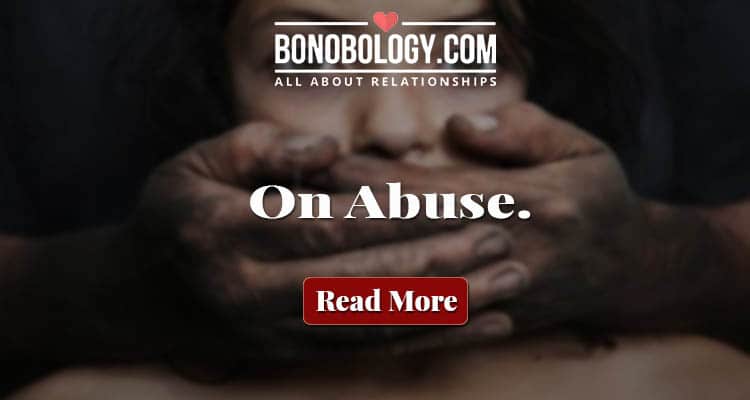
It is equally important, if not more, to understand what to do when you’re being guilt-tripped by a partner because when you’re constantly made to feel guilty about your behaviors and actions, you tend to internalize it. This triggers an even more perilous tendency of self-blame and guilt.
For instance, if your parents guilt-tripped you as a child, you may internalize it to such an extent that negative, self-disparaging talk becomes second nature to you. Besides, you may end up attracting partners who do the same because their language is so familiar to what you’ve grown up with. After all, there is no denying that the way you were raised affects your adult relationships.
To make sure you can break free from this pattern, let’s take a look at some ways to deal with guilt-tripping in relationships:
- Self-worth and self-esteem: Realize your own worth and don’t tie it to validation from another person, no matter who they’re – a partner, a parent, a child, a friend. At the time, work on rebuilding your self-esteem
- Non-toxic support system: Invest in building a support system of non-toxic friends who can help you realize that you don’t need to bend over backward to please someone or seek their approval. By loving you and appreciating you for who you are, these friends can help you reclaim your sense of self-worth and self-esteem
- Define your priorities and limits: Awareness is the first step toward healing. To deal with guilt-tripping in relationships, you ought to know what your priorities and limitations are. If meeting someone else’s expectations requires you to go beyond your limits, learn to say ‘no’ and be okay with whatever reaction comes your way. In other words, don’t feel guilty about prioritizing self-preservation
- Seek therapy: Breaking old patterns, especially ones the foundation of which may have been laid in your childhood days, is never easy. Having a safe space to vocalize your feelings and thoughts, coupled with the guidance of a trained psychologist, can help you gain a more robust perspective on the reality of your relationship dynamics and effect change
- Set and reinforce boundaries: Effective boundary setting can be an impactful way of dealing with guilt-tripping in relationships. However, it’s advisable to do so under the guidance of a therapist or counselor. Going it alone may backfire as you’d lack the necessary tools to communicate and assert your boundaries the right way

Like any other form of abuse, guilt-tripping can be severely damaging to the victim as well as the health of a relationship. Once you recognize the warning signs, make a conscious effort to shake up the status quo. Progress may not always be linear but with consistent effort and the right help, you can break free from this insidious form of toxicity.
Your contribution does not constitute a charitable donation. It will allow Bonobology to continue bringing you new and up-to-date information in our pursuit of helping anyone in the world to learn how to do anything.



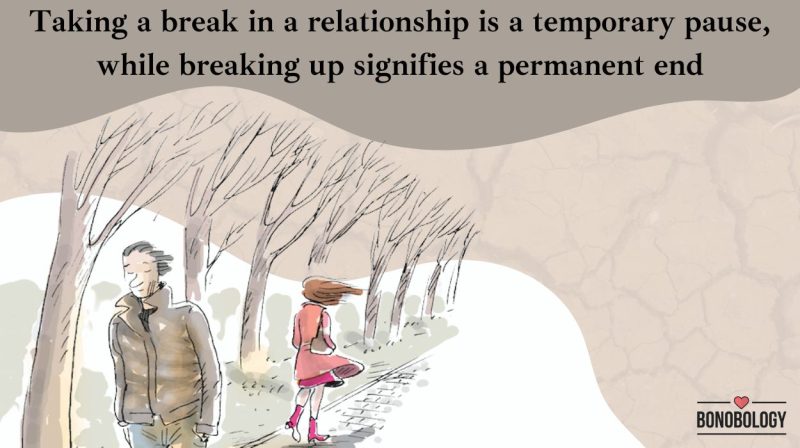


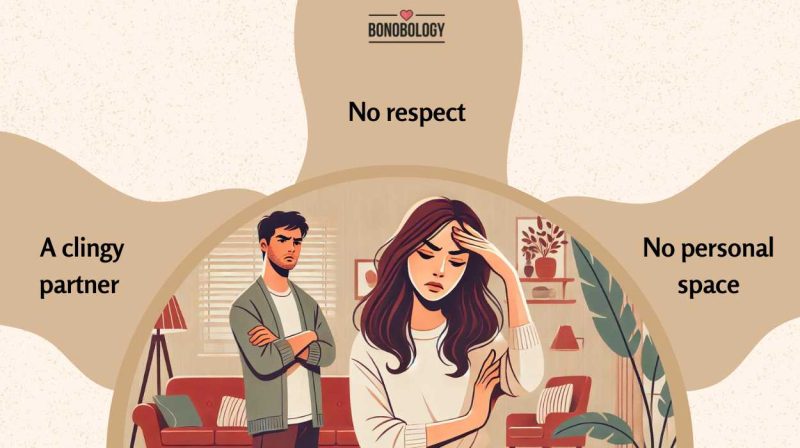
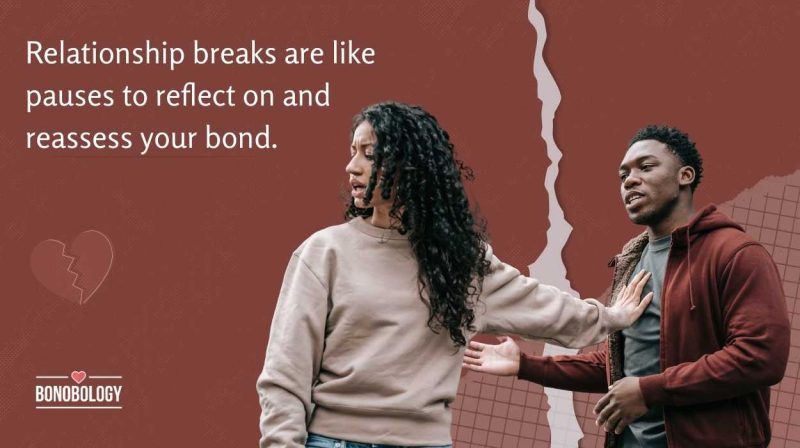
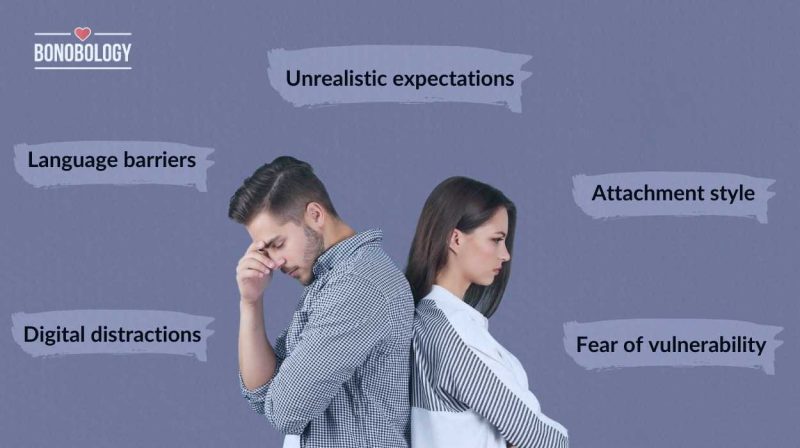
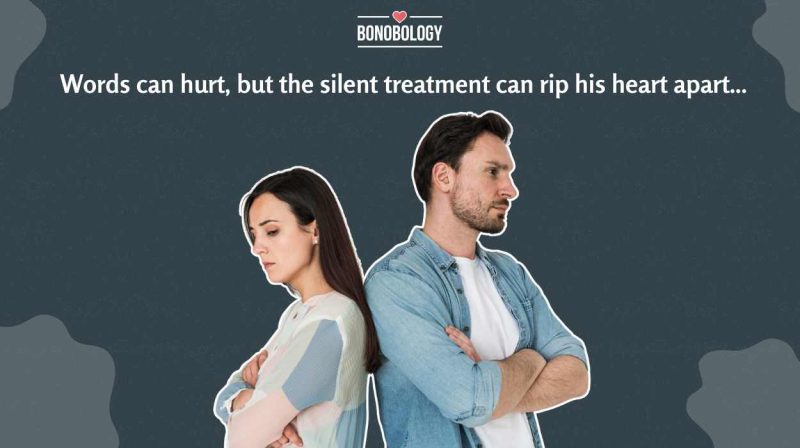

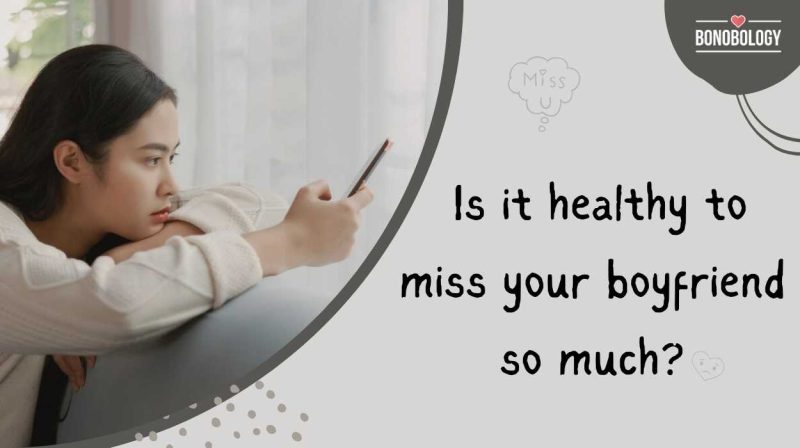
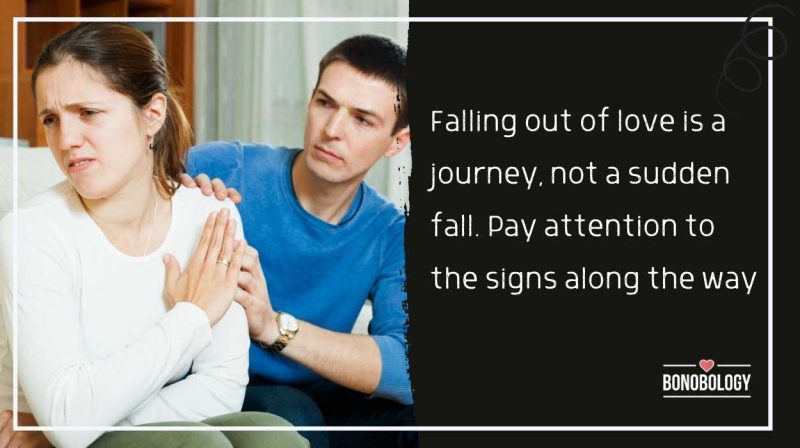
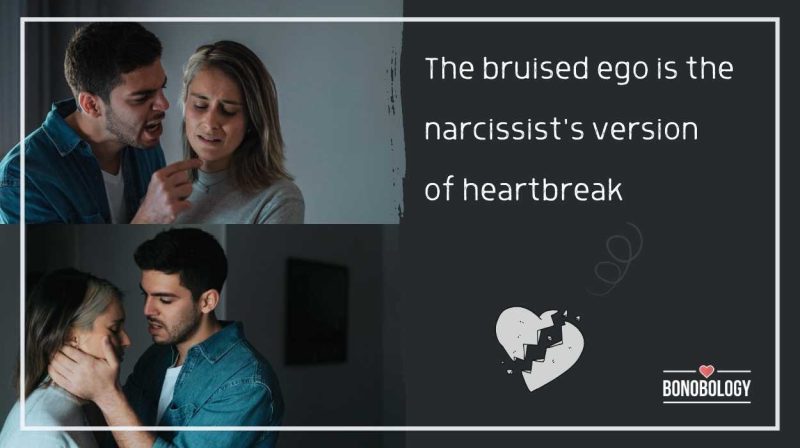
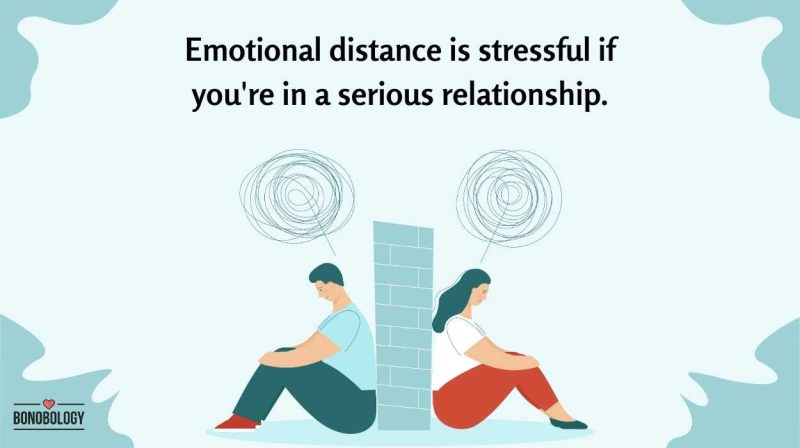
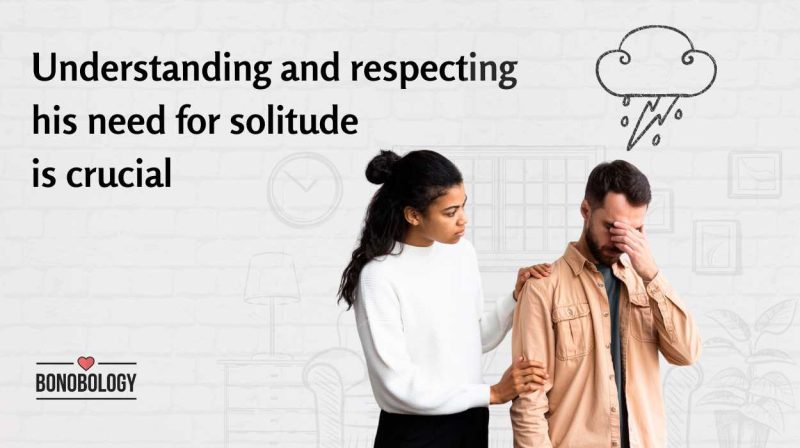
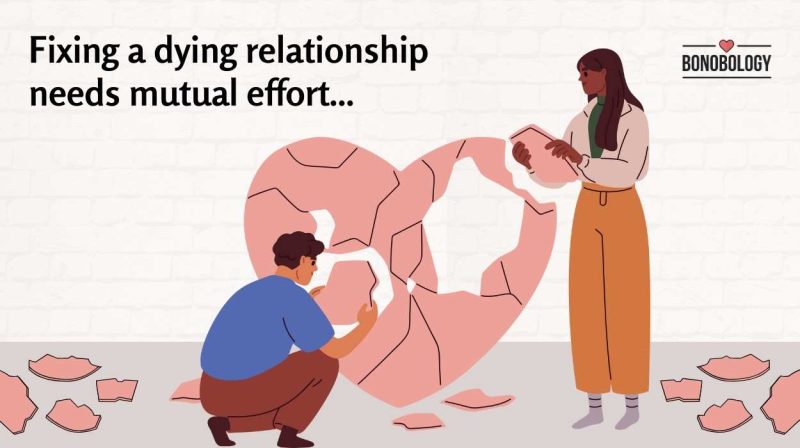
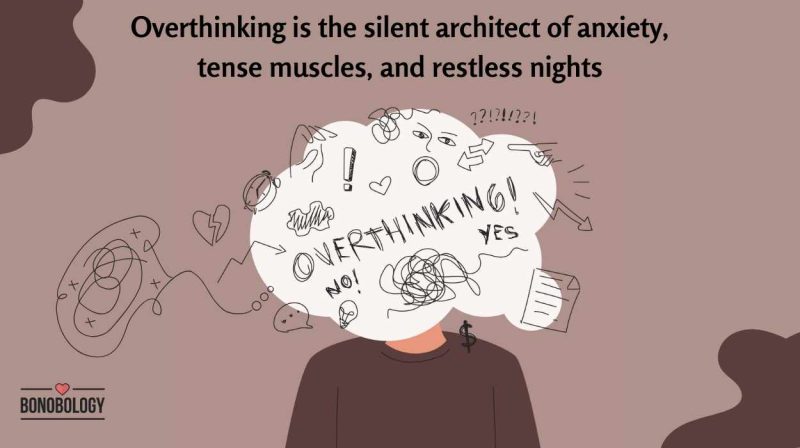

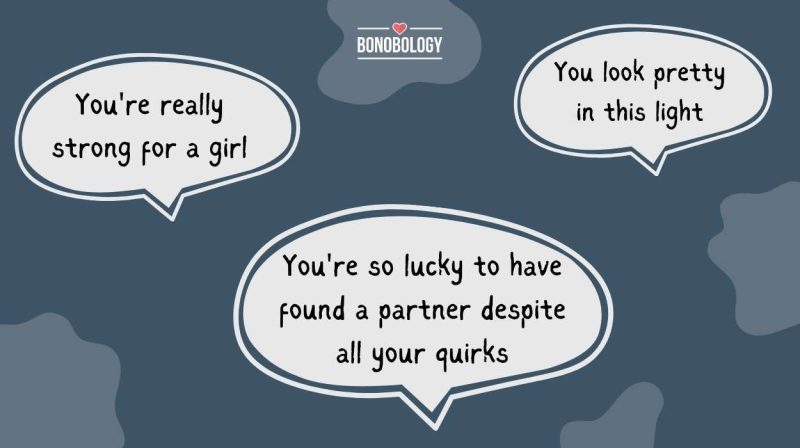
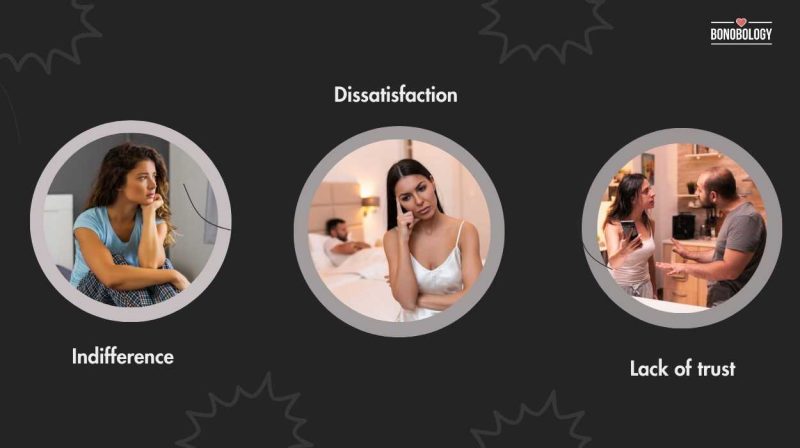
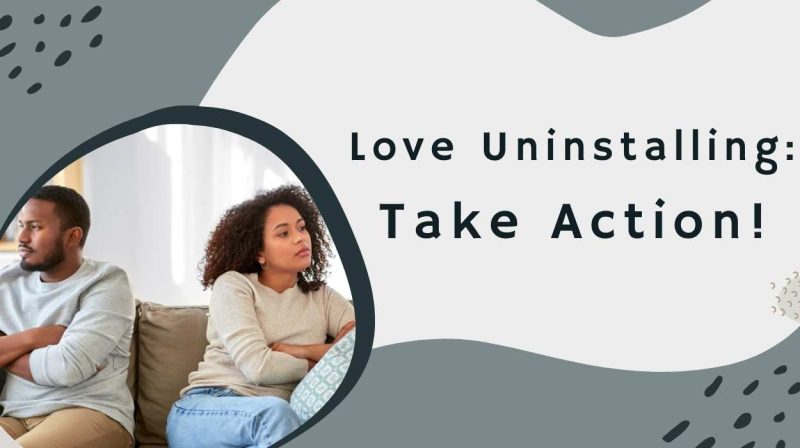

Featured
What Is A Break In A Relationship And How To Navigate It
Emotional Abandonment In Marriage: Signs, Causes, And Ways To Cope
15 Signs That Your Girlfriend Isn’t Sexually Attracted To You
Feeling Suffocated In A Relationship: Reasons, Signs, Ways To Deal
How Long Should A Relationship Break Be? A Therapist Answers
Why Do I Struggle To Communicate With My Partner? An Expert Answers
Will He Come Back After Silent Treatment? 15 Ways To Make Sure He Does
How Online Nursing Degrees Influence Relationship Dynamics
Why Do I Miss My Boyfriend So Much: Reasons And Ways To Deal
21 Clear Signs She Doesn’t Want A Relationship With You
How Narcissists Treat Their Exes — 11 Common Things They Do And How You Can Respond
Emotional Distance: Meaning, Causes, Signs, And Ways To Fix
My Boyfriend Is Grieving And Pushing Me Away: Tips To Cope And Comfort Your Man
What To Do When Your Relationship Is At Breaking Point?
Am I Overthinking Or Is He Losing Interest? 18 Signs To Help You Identify
Discover Your Worth: 13 Ways To Feel Loved And Appreciated
23 Backhanded Compliment Examples in Everyday Life That Are Actually Insults
11 Things That Happen When A Woman Shuts Down Emotionally – And How To Reconnect
15 Signs Of Emotional Detachment In Your Relationship
How To Not Be Jealous In A Relationship – 15 Expert Tips